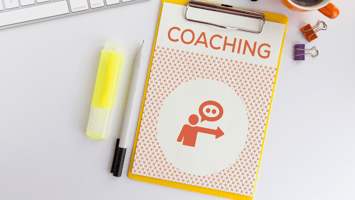Linkedin can be a great place for coaches to hang out and get more clients and increasingly it's a...
What does a life coach actually do?
We’ve all seen the stereotypes. The so-called “life coach” who swans in with a green juice in one hand and a yoga mat in the other ready to tell you how to overhaul your life, despite having no real qualifications. Or the Insta-guru who dishes out prescriptive advice based on what worked for them assuming it will automatically work for you too.
It’s time we set the record straight and really looked at what coaching is (and isn't)
A Real Life Coach Doesn’t Tell You What to Do
Let’s be clear here, coaching is not about giving advice that falls more under mentoring or consulting. A qualified, ethical coach doesn’t come into your life to give you an audit and tell you how to “fix” yourself or advise you to get up at 5am every day.
If someone’s telling you what to do, they’re not coaching they’re advising or consulting. Advising and consulting are great and some coaches combine these modalities yet there is a difference and understanding this makes all the difference.
Coaching is about presence, deep listening, evoking awareness and growth. A coach helps you uncover your own truth, make aligned decisions and create meaningful change on your terms. I see the role of a coach as to support their client to get a new insight which will help them to rewire their neural pathways changing the way they think, feel and act.
No, You Don’t Need to Have Life “Sorted” to Be a Coach
One of the most common myths is that coaches must have perfect lives. Spoiler alert despite what we see on social media nobody has a perfect life (at least no one I've ever met) And anyone who claims they do? Probably not someone you should be taking advice from. We all know that the allure of quick results can draw most of us in which is why insta-famous coaches can seem like a good bet.
Great coaches are people who are self-aware. They’ve done (and are doing) their own work and know their strengths and shadows. They’re not showing up pretending to be flawless. They’re showing up to hold space, judgement-free, for you to explore who you are, what you want and how you want to live. The International Coaching Federation (ICF) even talk about self awareness as one of the components of their core competency coaching mindset.
What matters most isn’t perfection. It’s presence, neutrality and the ability to support someone else’s growth without projecting your own fears, hopes, or unresolved stuff onto them. It's one of the reasons that many coaches take training and supervision seriously as these spaces support their growth and awareness so they can do good rather than causing harm.
Coaching Is Not One-Size-Fits-All
The self-help world often preaches generic advice. Wake up at 5am, meditate for an hour, journal daily, de-clutter your house etc etc. Whilst all of these do work and can be incredibly beneficial they don't work for everyone. I remember when I had a newborn baby being told to mediate for an hour by a coach which made me feel like I wasn't being seen, I'm sure mediation would have helped however I was on survival mode with little sleep and a lot of demands. What I needed was someone to listen and support me to find my own solutions. Herein lies the issue with blanket advice it rarely considers the whole picture—your responsibilities, identity, cultural context or neurotype. Coaching is tailored to you and your solution.
Real life coaching meets you where you are. It’s rooted in individual differences, context and compassion. That’s why a holistic approach like the one we use at Optimus which considers one that considers the brain, body, emotions, context, behaviour and identity is so powerful. When coaches have this whole person approach they can support their clients on a deeper level.
So What Does a Life Coach Do?
They help you:
- Build awareness of where you are right now exploring context, identity, behaviour and helping you to notice patterns and glean new insights
- Understand how your thoughts, beliefs, emotions, and behaviours interconnect so you can consider what you want to next
- Explore possibilities, decisions and values from a place of clarity helping you confidently move forward.
- Take action that feels aligned with who you are and what you want which feels energising and motivating.
- Make small (and big) shifts that can change your life rewiring your neural pathways in the process.
From helping someone decide to end a draining friendship, to supporting a new parent in setting boundaries, or guiding a client to finally make the leap on that big dream life coaching is about creating momentum and helping your client to move forwards. Sometimes this can feel like a leap and at others it's small steps that compound over time creating transformational change.
Can Anyone Be a Life Coach?
Yes, and no. Life experience matters but so does the capacity to be fully present with someone else. Coaching is a powerful skillset that anyone can learn if they have a growth mindset and are motivated to. And the best way to gain that skillset is through proper training that’s evidence-informed, grounded in psychology and focused on whole-person growth.
That’s why at Optimus Coach Academy we offer holistic coaching diplomas that equip you to work with real humans navigating real challenges, not just idealised versions of success.
If you’re curious about coaching, or wondering if it might be a path for you, get in touch. You might already have everything you need to make an incredible impact.




